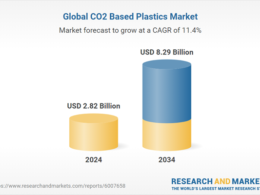The 2024 Global Sustainability Survey revealed that sustainability has emerged as a critical priority for small and medium-sized enterprises (SMEs) worldwide, shaping their long-term value and credibility. The survey conducted by DHL Express, includes data from 5,000 SME decision-makers across 11 key markets, including the UK, India, China, Germany, and Mexico.
Spanning nine diverse sectors such as retail, fashion, technology, and financial services, it sheds light on how sustainability is influencing SME supply chain operations and identifies actionable strategies to drive progress.
The findings reveal that at least two-thirds of SMEs in all sectors consider sustainability “very important” or “extremely important.” The financial services and fashion industries lead this sentiment, with 81% of respondents emphasising its significance.
Although they recognise the importance of sustainability, the findings indicate that most SMEs remain hesitant to commit significant budgets to sustainable initiatives. Over half (53%) of the respondents allocate only 1–3% of their operating budgets to sustainability, while just 9% invest more than 5%. Alarmingly, 16% of SMEs reported allocating no budget at all.
Michiel Greeven, Executive Vice President Global Commercial at DHL Express, acknowledged the challenges SMEs face and said, “Developing and implementing a sustainability strategy can feel overwhelming. By partnering with logistics leaders like DHL Express, SMEs can access low-emissions shipping solutions that ensure competitiveness and long-term growth.”
This is also the reason why securing internal and customer support for sustainability remains a significant obstacle for SMEs. Globally, only 23% of customers are willing to pay extra for sustainable shipping, though confidence is higher in markets like India (51%) and China (47%).
In Germany, the challenge is particularly acute, with 74% of SMEs citing internal and customer buy-in as a hurdle to achieving sustainability goals. While often criticised for unsustainable practices, the findings indicate that the fashion industry is among the most proactive sectors, with 81% of SMEs ranking sustainability as crucial to their business. Additionally, 78% believe sustainable delivery options could enhance their brand image.
The financial services sector, however, stands out as the most committed to sustainability, with 43% of respondents ranking it as “extremely important” and 88% willing to allocate budget toward sustainable practices. Nearly half (47%) believe offering sustainable options could significantly boost commercial success.
Sharing insights from the report, the DHL Express team also highlighted how they continue to prioritise sustainability themselves, including the goal to reduce annual greenhouse gas emissions to under 29 million metric tons, electrifying 66% of last-mile delivery vehicles, and increasing the use of sustainable aviation fuels (SAF) to over 30%. The 2024 Global Sustainability Survey highlights how sustainability is set to reshape industries over the next decade.
“Sustainability is not just a priority but a business imperative,” Greeven emphasised. “At DHL, we are committed to equipping SMEs with the tools and strategies needed to succeed in a greener future.”





















